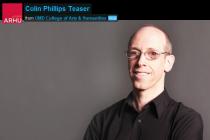CogSci Colloquium: Chaz Firestone (JHU)
The perception of silence
Abstract: What do we hear? An intuitive and canonical answer is that we hear sounds — a friend’s voice, a clap of thunder, a minor chord, and so on. But can we also perceive the absence of sound? When we pause for a moment of silence, attend to the interval between thunderclaps, or sit with a piece of music that has ended, do we positively hear silence? Or do we simply fail to hear, and only know or judge that silence has occurred? Philosophers have long held that our encounter with silence is cognitive, not perceptual, hewing to the traditional view that sounds and their properties (e.g., pitch, loudness, timbre) are the only objects of auditory perception. However, the apparent prevalence of silence in ordinary experience has led some philosophers to challenge tradition, arguing for silence perception through thought experiments and new theoretical perspectives. Despite such theorizing, silence perception has not been subject to direct empirical investigation. Here, I present the first empirical studies of the hypothesis that silence is genuinely perceived. Across multiple case studies, I'll show (both through experimental results and also through subjectively appreciable demonstrations) that silence can 'substitute' for sound in illusions of auditory eventhood — and thus that silences can serve as the objects of auditory perception. This work also paves the way for new empirical approaches to absence perception more generally, with consequences for broader questions about the objects of perception, representations of negative properties, and other foundational issues at the intersection of the philosophy and psychology of perception.










